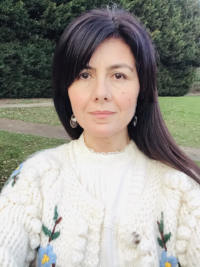My Approach
Melita draws from psychodynamic, existential, and relational psychoanalytic psychotherapy.
She prefers to address problems as external manifestations of underlying and inner dilemmas and conflicts and therefore problems can be viewed as significant opportunities for exploration, growth and meaning-making.
She tries to work together with each person to shed light to a life experience as it is lived by the person. She tries to promote the idea that self-examination accompanies, supports, and helps a person towards working through and living better with pressing or troubling questions about areas of unrest or confusion.
She sees therapy as an experience rather than as an intellectual activity. She sees therapy as a collaboration and a conversation between two people.
She strives to respect each person's natural will and to work and struggle together with each person to cultivate, nourish and encourage an additional will, the will of the person as a human being. This can make better sense through the experience of psychotherapy.
Available languages of therapy:
- English
-Greek
About Me
Melita is an experienced qualified and accredited existential analytic psychotherapist, and she has been in supervised practice since 2014.
She has a BA in Social Work and she practiced as a social worker for ten years before she decided to study and train in psychotherapy. She completed her three-year MSc and qualified in Counselling and Psychotherapy in the university of Roehampton, London UK in 2017.
She furthered her interest and studies in existential analytic psychotherapy via the Southern Association for Counselling and Psychotherapy and she trained for an additional two-year post qualified accreditation course.
She was in personal analysis for eight years.
Recently, in 2020, she completed a Dynamic Interpersonal Therapy Course with the Anna Freud Centre in order to be able to offer short term psychodynamic counselling to people who need to access free short-term relational therapy through the NHS.
Her research interests lie in the potential place between psychotherapy and anthropology-sociology-philosophy, psychotherapy and the arts, and finally psychotherapy and Christianity, in particular the eastern orthodox Christianity (Chalcedonian).
Her most recent publication can be accessed here: https://ahpb.org/wp/wp-content/uploads/2020/05/nl-2020-t5-02-del-paper.pdf
I work with
- Individuals
Special Interests
Like all UKCP registered psychotherapists and psychotherapeutic counsellors I can work with a wide range of issues, but here are some areas in which I have a special interest or additional experience.
Types of Therapies Offered
- Existential-Analytic Psychotherapist
What I can help with
Types of sessions
- Online Therapy
Office
64 Rawnsley AvenueFlat 4 Bucklands Court
CR4 4BX
United Kingdom (UK)
View Map
UKCP College
- Constructivist and Existential College (CEC)


